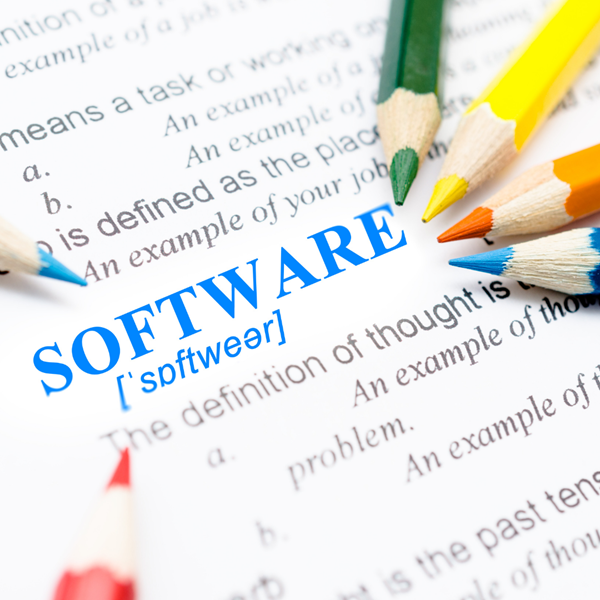
Our team regularly monitors social media for discussions about the use of reference management software. We learn a lot from these conversations: what our (potential) users‘ needs are, what current academic trends are, what features people wish they had, and what other available software people use to make their academic work easier.
In many threads, we see discussions asking who uses which program and what the pros and cons are. Invariably there are one or two people who don’t use reference management software at all. Some have never even heard of reference management software before and are glad to receive recommendations. Others have made a conscious decision not to use reference management software. Fans of reference management software can hardly believe that and will try to convince the doubters about all of the advantages. As you might expect out of a debate on X (formerly Twitter), they don’t often succeed.
Of course, there are good points on both sides of the debate. Even as someone who works for a company that makes reference management software, I can understand some of the arguments against using it in certain cases and thought it might be useful to list them out.
Here are six times when you might want to manually cite instead of using reference management software:
-
You’re only citing a handful of references
At the beginning of your studies as a student, you’ll write your first research papers. That’s when you’ll first start thinking about how to do scholarly research and how to cite. You may take part in courses on how to write and do research, read guides for the requirements of your major, or seek out help from teaching assistants or professors.
I can well remember my first papers and having to find where the footnote feature was hidden in Word. I also was confused about what exactly I needed to enter there. The first time I used a direct quotation, I was very careful to apply the citation and bibliography formatting exactly. As soon as I entered the direct quotation, I went straight to the end of my document and added the entry to the bibliography so as not to forget it. Before handing in my paper, I used the sorting feature in Word to put everything in alphabetical order. My system worked well for me since the bibliography for my paper only had a handful of sources.
In comparison to later research papers and my Master’s thesis, I didn’t have the feeling of being overwhelmed by the number of sources or that the formatting was time consuming. Plus, this manual work had a positive effect which later came in handy even when using reference management software: I learned what information was needed to cite a source in both the footnotes and the bibliography according to the style guidelines from my university.
-
You have enough time to write citations by hand and check styles
Reference management software can save you a lot of time typing and looking up formatting rules. Citavi, for example, offers automatic citation formatting for more than 10,000 styles! Also, if your style guidelines later change or if you later need to submit your work to a different journal with different guidelines, you just need to make a few clicks to update your citations and bibliography. Many of us often have to deal with short turnarounds. Especially right before a deadline, it can seem that every second counts. And reference management software is simply faster than you are.
However, if you have a more forgiving timeline or if you’re writing for your own interest and passion, you don’t need to worry about saving every last minute. You can take your time checking all of the formatting in your citations or you can even change your citations from footnotes to in-text citations if your guidelines change.
-
You like being in control of your system
Your motto is “better safe than sorry”. You wouldn’t trust your work to any software and you want to keep full control over your citations.
Unfortunately, full control goes hand-in-hand with full responsibility. If you suddenly need to work with a new edition of your citation style, for example switching from APA 6 to APA 7, you’ll need to make a lot of manual updates to the formatting of your citations and bibliography in the middle of your work.
Perhaps for you it would be good to know that even if you use Citavi as your reference manager, you never have to give up control completely. The program only outputs the data that you yourself put into it. If an entry is not as you expect, you’re always able to correct it. And who knows, sometimes your program might be able to implement a lesser-known rule in your citation style guidelines that you otherwise could have missed. At the end of your work you can always disconnect your document from your program and make any changes you want to the text. We anyway recommend always performing a final check, since you always bear the full responsibility for your work in the end.
-
You prefer working on paper instead of with software
Not only do you prefer reading articles that are printed out instead of on the web, you also prefer taking handwritten notes on paper. In addition to your notes, you also write out your source details and rough drafts of your arguments for your paper by hand. Only when your deadline looms closer do you sit down at your computer, open your word processer, and type everything out. Perhaps you find it more difficult than others to work with software, and it’s simply easier for you to do everything by hand. You might think that it would take much more time to learn a new software program rather than just typing “(Miller 2020)”.
-
You enjoy the monotony of creating bibliography entries
Academic work is difficult enough as it is. You’re constantly thinking about complex theories, discussing new projects with colleagues, and reading about new results in your discipline. Your brain hardly has time to process and make links between all this information – except when you are engaged in mindless tasks like checking whether each book title in your bibliography is really formatted in italics.
In such times you don’t need to think, you just need to do the work. Between footnote 245 and 246 you might suddenly have a stroke of genius and be thankful that this monotonous task helped you call up some divergent thinking.
-
You’ve already come up with your own alternative solution to reference management software
I remember a meeting with a researcher who I wanted to convince to use reference management software. He just waved my explanation away and explained to me that he had no need for such a solution. I expected that he would have one of the five reasons listed above, but then he surprised me.
He had programmed an application that output exactly what he needed for his citations. Most reference management programs offer many features, since they are meant to be used in all academic disciplines.
That can be overwhelming at first, since you need to pick out the features you actually need. This researcher had only what he needed and nothing else. In addition to individually programmed solutions, other researchers create customized Excel sheets in order to keep track of their sources and notes. You can learn more about using Excel for your citation tracking in our blog post Should you use Excel, Google Sheets, or Citavi for Your Literature Review?
Reference Management Tools Comparison
Every tool that you use needs to fit your needs. Software is always developed by people who have a specific use case in mind. Even among similar types of software, there will be a lot of differences. For example, Citavi goes beyond reference management to guide your research writing from the idea stage all the way through publication. So, if you’re considering using an app for reference management, try to find which one best fits your personal goals and workflows. Read our blog post, How to Select a Reference Management Program, where we share tips for what you should consider.
Under certain circumstances, you may decide that you’d rather not work with any program. That’s also fine. Our goal at Lumivero is to offer tools that can help streamline your process to allow for greater insights and discovery. Whether or not you use it or another program is completely up to you, but consider giving Citavi a try with a free 30-day trial before you make up your mind!
Interested in Citavi as Your All-In-One Writing and Reference Manager?
Citavi goes beyond citation management -- it keeps your references, quotations, comments, images, notes and more organized into your category system. With this system, you can import your Citavi file into Word and automatically generate an outline for your project, all while keeping your saved network of notes and insights easily accessible. Citavi keeps you in control of your work while helping you dig deeper and publish faster. Learn more about Citavi today and watch our on-demand webinar, Accelerating Your Literature Review with Citavi & NVivo!

About Jana Behrendt
Jana Behrendt, a librarian by training, is deeply interested in everything related to personal information management. However, she does not read as much as you would expect from a librarian. She loves hiking in the Swiss Alps – as long as she doesn’t have to look down.
Originally published: Feb. 23, 2021
Updated: June 6, 2024
